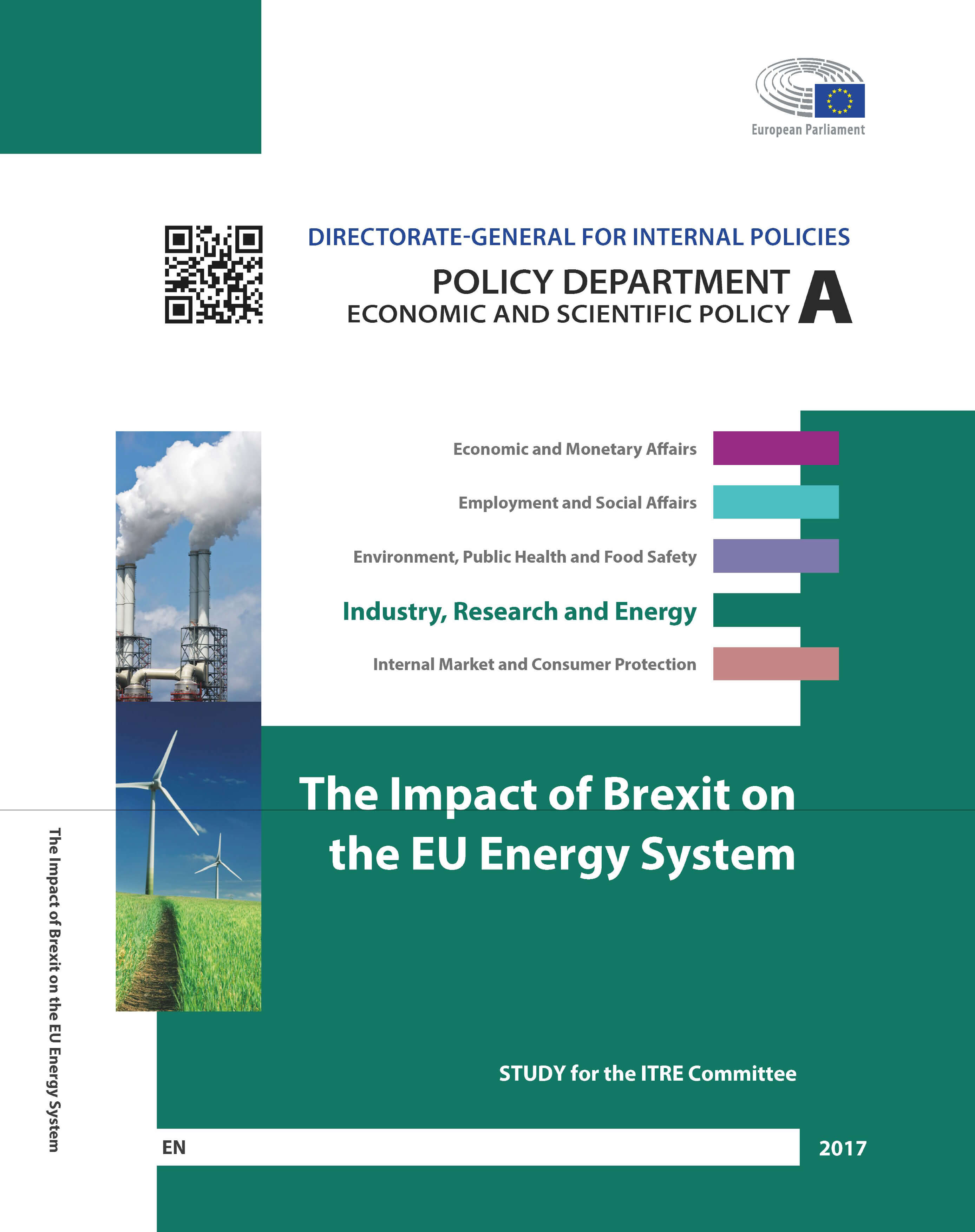External Publication
The Impact of Brexit on the EU Energy System
What will be the impact of Brexit on the EU energy system? With or without the UK, the EU will be able to complete its market, to achieve its climate and energy targets with feasible readjustments, and to maintain supply security
This study was prepared for the Committee on Industry, Research and Energy of the European Parliament (ITRE). Copyright remains with the European Parliament at all times.
The European Parliament’s Committee on Industry, Research and Energy (ITRE) called for this study in light of the Brexit referendum. The study focuses on the possible effects on EU citizens and companies in order to inform the Brexit negotiations from an EU perspective. The authors address eight key issues concerning the potential impact of Brexit on the EU energy system. On aggregate, the energy system related impact of Brexit on EU citizens and companies will be limited.
With or without the UK, the EU will be able to complete its market, to achieve its climate and energy targets with feasible readjustments, and to maintain supply security. In addition, the authors do not expect that it will be in the UK’s interest to seek a competitive advantage for its companies by discriminating against EU energy companies active in the UK, or by competing with the EU’s manufacturing industry through lowering energy taxes or environmental standards. Despite our belief that the negative impact of Brexit on the EU energy system is manageable, our analysis demonstrates the immense number and sizable impact of very important details that will need to be resolved in a short period of time. Moreover, our analysis shows that special attention should be paid to the impact of Brexit on the Irish energy system.









